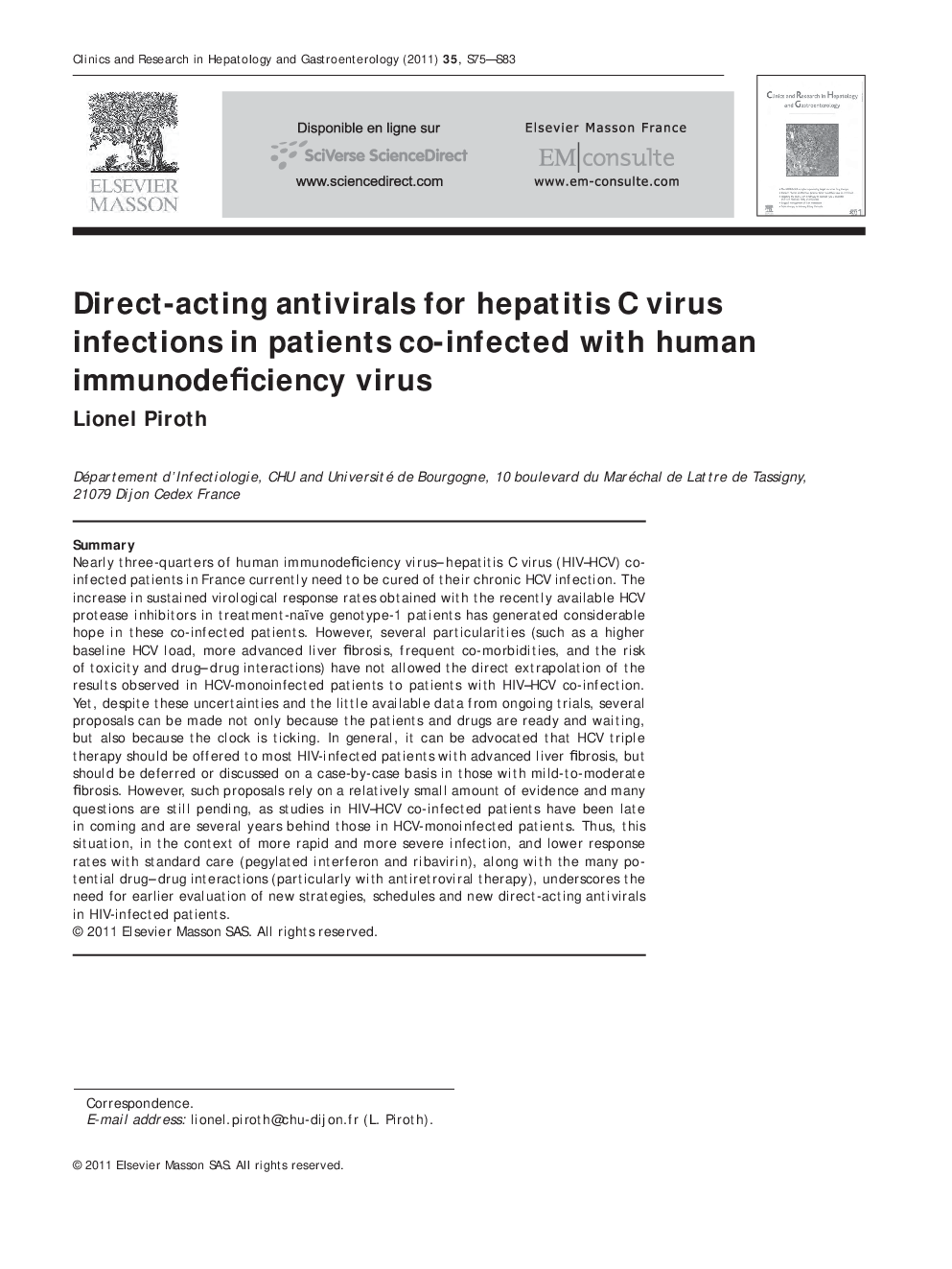| Article ID | Journal | Published Year | Pages | File Type |
|---|---|---|---|---|
| 3286973 | Clinics and Research in Hepatology and Gastroenterology | 2011 | 9 Pages |
SummaryNearly three-quarters of human immunodeficiency virus–hepatitis C virus (HIV-HCV) coinfected patients in France currently need to be cured of their chronic HCV infection. The increase in sustained virological response rates obtained with the recently available HCV protease inhibitors in treatment-naïve genotype-1 patients has generated considerable hope in these co-infected patients. However, several particularities (such as a higher baseline HCV load, more advanced liver fibrosis, frequent co-morbidities, and the risk of toxicity and drug–drug interactions) have not allowed the direct extrapolation of the results observed in HCV-monoinfected patients to patients with HIV-HCV co-infection. Yet, despite these uncertainties and the little available data from ongoing trials, several proposals can be made not only because the patients and drugs are ready and waiting, but also because the clock is ticking. In general, it can be advocated that HCV triple therapy should be offered to most HIV-infected patients with advanced liver fibrosis, but should be deferred or discussed on a case-by-case basis in those with mild-to-moderate fibrosis. However, such proposals rely on a relatively small amount of evidence and many questions are still pending, as studies in HIV-HCV co-infected patients have been late in coming and are several years behind those in HCV-monoinfected patients. Thus, this situation, in the context of more rapid and more severe infection, and lower response rates with standard care (pegylated interferon and ribavirin), along with the many potential drug–drug interactions (particularly with antiretroviral therapy), underscores the need for earlier evaluation of new strategies, schedules and new direct-acting antivirals in HIV-infected patients.
